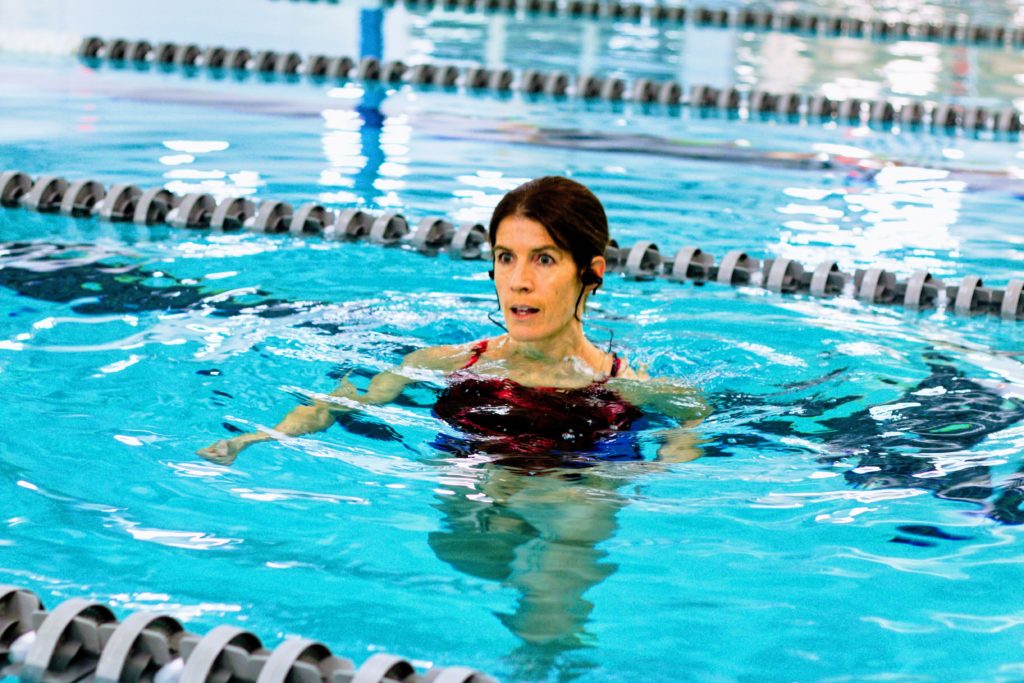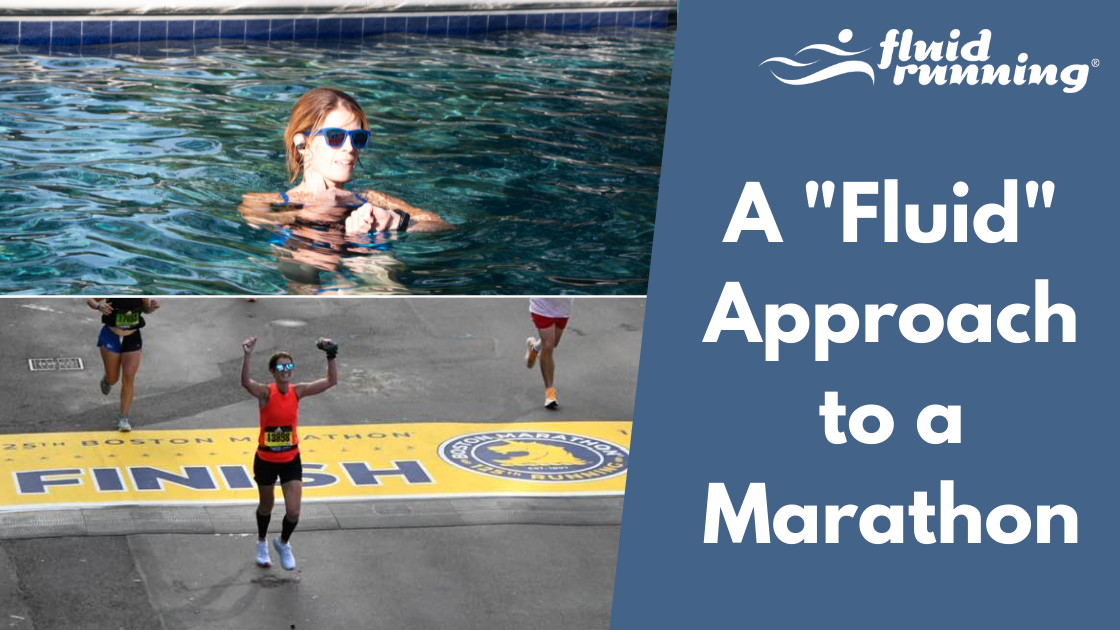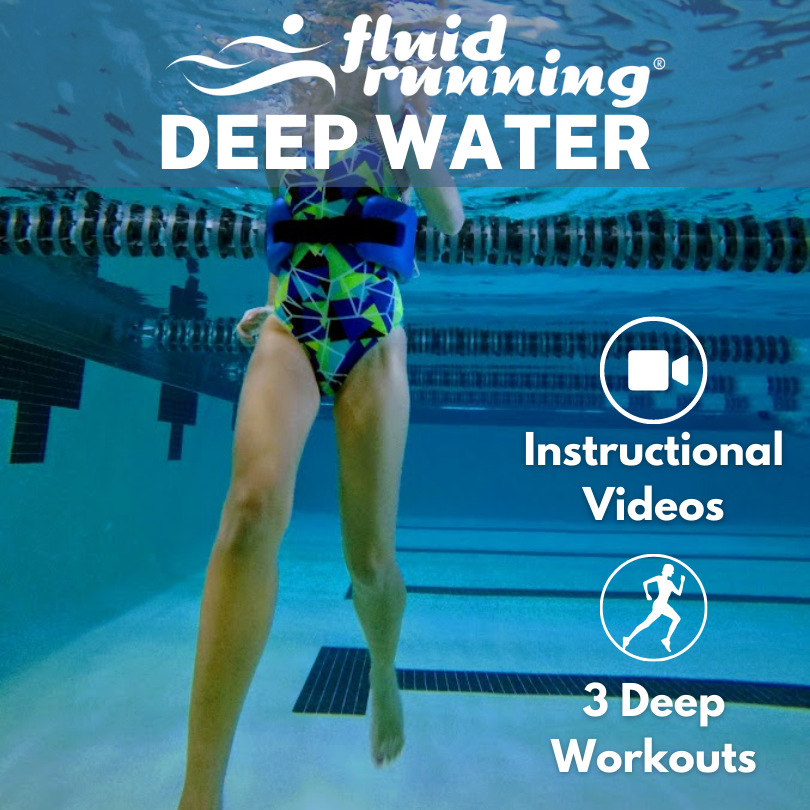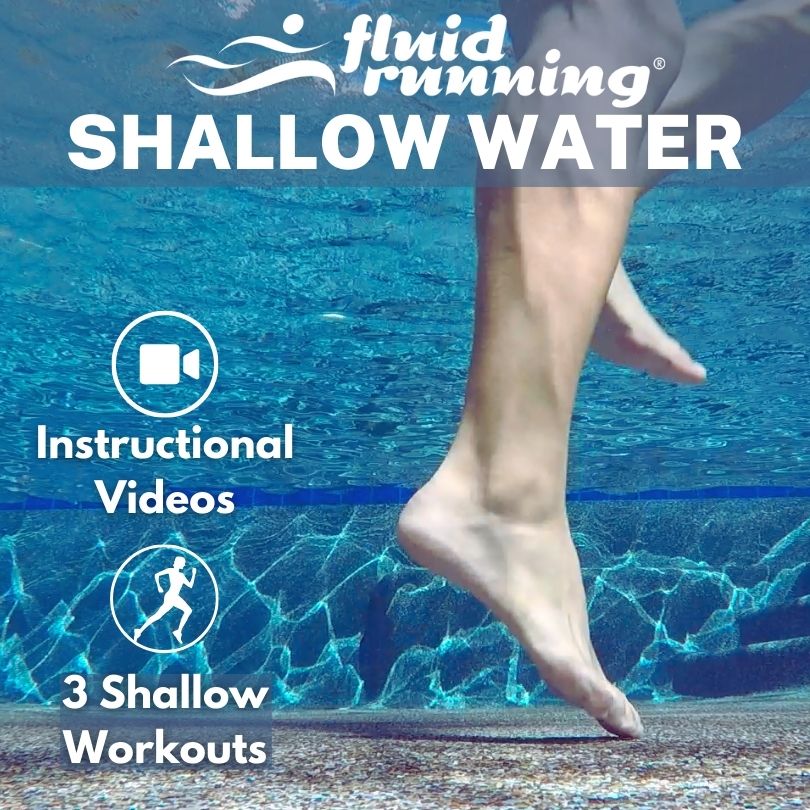We asked our Fluid Runner, Jen Govostis to tell us about her “water based” marathon training program that got her to the start and finish line of the 2021 Boston Marathon.
We hope this story will inspire and give hope to all the runners who inevitably find themselves with some kind of pain or injury. It doesn’t necessarily have to mean the cancellation of a race, or even loss of fitness. Studies have proven that even elite athletes can maintain peak running fitness for up to six weeks by solely running in the deep water. This story has us believing that timeframe might be a lot longer!
We’re so glad Jen had both the confidence in Fluid Running and the fortitude to keep training the way she did. We were even a bit surprised to learn about how little land running she did! The power of the water. The power of Fluid Running. Read on!
– Jennifer Conroyd
By Jen Govostis
Day one into my 18 week Boston Marathon training program and I set out for an easy 4-5 miler. The plantar fasciitis in my left foot is nagging just a little more than usual, but I keep running. At about 1 mile in, I am feeling a sharp pain in the heel and it is not the kind of pain you can (or should) run through. Unable to shake it off, I head home in a deflated walk, cursing myself for not listening to all of those little niggles in my foot the previous 6 weeks, and even shedding a few tears over the fact that my Boston journey is not beginning quite the way I had hoped.
By the time I return home, my pity-party was over, and Winston Churchill’s quote “never, never, never give up” is repeating in my head. Time to take my training to the pool and Fluid Run!
Fluid Running has been a huge part of my marathon training and a part of my life for the past five years. For my previous 3 marathons, I was Fluid Running 2-3 times each week leading up to race day. Without it, I would not have even qualified for the Boston Marathon! My form and speed have improved significantly in the water and my joints have been spared the impact that high “land” mileage would bring.

So how and why was this Fluid Running marathon training different than my previous three? First, I had never had an injury this early in the training, and second, I had never had an injury last so long and linger so close to race day (that darn plantar fasciitis!). With only 57.5 miles logged in “land” miles cumulative over 18 weeks, this would be the least amount of miles that I had put under my feet leading up to a marathon…..by a lot! And yes, you read correctly, less than 60 miles run on land the entire 18 week training period! This amounts to about 16% of my run training. What’s also worth mentioning is that my total mileage, meaning land miles plus Fluid Running miles was substantially less. I think it’s a testament to the muscular and cardiovascular strength that you get from running in the water. This unorthodox approach to a marathon definitely had me a little nervous, but I had both faith and experience in using Fluid Running as a part of my marathon training and so I persisted in my goal of crossing that Boston finish line.
Speedwork, tempo runs, long runs, easy runs, even strides, and hill repeats were all run in the water with obviously, no impact. The Fluid Running system provides a wide variety of Fluid Running workouts that fit beautifully into each one of these running effort categories with the occasional addition of time (especially for long runs) and hill repeats (which I love!). Although you cannot calculate the exact distance traveled, you can assimilate your miles traveled by comparing your HR and time in the water to what your HR and time would be out of water. If you run a 5k on land with an average HR of 150 in 24 minutes, then you would Fluid Run for 24 minutes with an average HR of about 15 beats less or 135 as the hydrostatic pressure keeps your HR lower when vertically submerged in the water. The fact that your HR is lower in the water while working at these intensities is also an amazing training benefit! You can work harder and recover faster resulting in a more efficient and stronger cardiovascular system. Additionally, you have a lot more resistance when running in water as water is 800 times denser than air. This requires more core activation to stabilize your torso and more effort with your arms and legs as you pull/push with each stride through the water’s resistance resulting in great strength benefits.

As race day approached my plantar fasciitis was improving and despite the limited land mileage, I felt ready to run the 26.2! Not only did I cross the finish line in Boston in 3:43:29 (less than a minute off of my PR), but I finished injury-free and enjoyed every mile and every minute of the run! I often tell people that Fluid Running is like finding the fountain of youth. Even if you are not dialing back time, you can certainly prolong your years running and racing. At age 50, I have discovered just that and realized over the past 5 years that there is more than one way to train for a marathon. For every Fluid Run mile, I am forever grateful!







